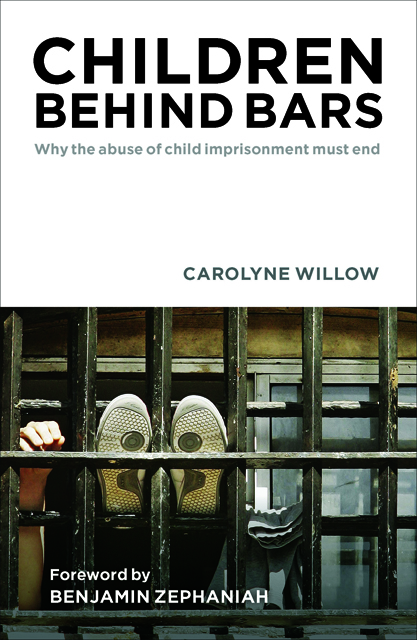Book contents
- Frontmatter
- Contents
- List of tables
- About the author
- Acknowledgements
- Preface
- Foreword by Benjamin Zephaniah
- one Introduction
- two ‘Things were not right at home’
- three ‘They just don’t listen’
- four ‘I think it’s quite like rape’
- five ‘I can’t breathe’
- six ‘What gives them the right to hit a child in the nose?’
- seven ‘We should be able to hug our families’
- eight ‘Every night I’m starving’
- nine Children were ‘given bags to urinate in’
- ten ‘The violence is unbelievable’
- eleven ‘Listen to the kids’
- twelve They shouldn’t be there
- Notes
- Index
eight - ‘Every night I’m starving’
Published online by Cambridge University Press: 15 April 2023
- Frontmatter
- Contents
- List of tables
- About the author
- Acknowledgements
- Preface
- Foreword by Benjamin Zephaniah
- one Introduction
- two ‘Things were not right at home’
- three ‘They just don’t listen’
- four ‘I think it’s quite like rape’
- five ‘I can’t breathe’
- six ‘What gives them the right to hit a child in the nose?’
- seven ‘We should be able to hug our families’
- eight ‘Every night I’m starving’
- nine Children were ‘given bags to urinate in’
- ten ‘The violence is unbelievable’
- eleven ‘Listen to the kids’
- twelve They shouldn’t be there
- Notes
- Index
Summary
We all use food to demonstrate how we feel about others, whether this is splashing out on celebratory meals, preparing family feasts or sneaking treats into children’s lunchboxes. Camila Batmanghelidjh, founder and director of the vulnerable children’s support charity Kids Company, writes about the importance of giving ‘fantastic food’ to children: ‘The offer of a free meal, with no strings attached, is often the first indication the agency cares.’ Batmanghelidjh has many stand-out virtues, but her understanding of the power of food is not unique. While most of us can reminisce about lumpy mash and runny custard, or, indeed, runny mash and lumpy custard, there are some foodstuffs only some of us will encounter. Fortnum & Mason hampers, food-bank offerings and prison meals are minority culinary experiences. As well as serving the physiological functions of keeping minds and bodies working, each emits signals about social worth. Unlike the lavish hamper and the charity hand-out, which, in different ways, communicate that their recipients matter, the prison meal has few affirmative qualities. It lacks generosity in style and substance, and maintains children in a state of hunger and neglect. There is no sense that children in receipt of prison meals are held in high esteem. Recent research for the Youth Justice Board (YJB) found that the governors of all nine young offender institutions visited thought ‘the food provision budget was inadequate to meet the nutritional requirements of their young people’. Some children bought their own salt, condiments and drinks from the prison shop and ‘items such as instant noodles and porridge to provide sustenance in the period between the evening meal and breakfast’.
The immense parental satisfaction derived from seeing your child wolf down a favourite meal is an early casualty of imprisonment. Young prisoners complain repeatedly of feeling hungry and mothers and fathers are powerless to do anything about it. In our research interview, Yvonne Bailey, the mother of Joseph Scholes, told me about a vigil she and other bereaved parents held outside Lancaster Farms young offender institution. One of the topics of conversation incensing these mothers was the failure of the prison to provide children with warm food at weekends.
- Type
- Chapter
- Information
- Children behind BarsWhy the Abuse of Child Imprisonment Must End, pp. 179 - 192Publisher: Bristol University PressPrint publication year: 2015



